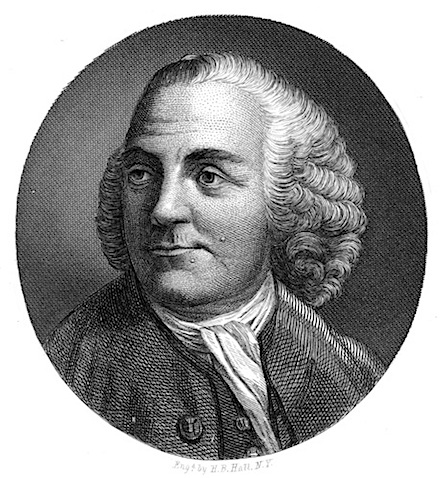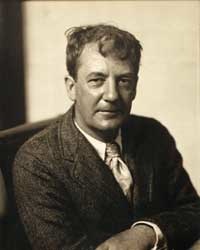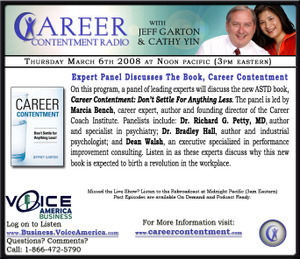A Sign of Intelligence

“The sign of an intelligent people is their ability to control emotions by the application of reason.”
–Marya Mannes (American Writer and Critic, 1904-1990)
Controlling What Happens Inside Us

“While we may not be able to control all that happens to us, we can control what happens inside us.”
–Benjamin Franklin (American Author, Inventor and Diplomat, 1706-1790)
Delight in Life

“If a man doesn’t delight in himself and the force in him and feel that he and it are wonders, how is all life to become important to him?”
–Sherwood Anderson (American Writer and Poet, 1876-1941)
Organic Organization

“Organisms shape themselves in response to their neighbors and their environments. All respond to one another, co-evolving and co-creating the complex systems of organization that we see in nature. Life is systems-seeking. It seeks organization. Organization is a naturally occurring phenomenon. Self-organization is the powerful force by which Gaia created herself through relationships, creating all the living systems we see. She knows how to organize from the inside out, from partnering with neighbors rather than from imposition and control.”
–Margaret J. Wheatley (American Writer and Expert in Organization Behavior and Systems Thinking, 1944-)
{“Reclaiming Gaia, Reclaiming Life”}

Learning By Example

“Perfect health, sincerity, honesty, straightforwardness, courage, disinterestedness, unselfishness, patience, endurance, perseverance, peace, calm, self control are all things that are taught infinitely better by example than by beautiful speeches.”
–Sri Aurobindo (a.k.a. Aurobindo Ghose, Indian Nationalist Leader, Mystic, Philosopher and Creator of Purna (Integral) Yoga, 1872-1950)
Irritability

“Irritability is immaturity of character. If you are subject to being cross and unpleasant with others for no apparent reason, you need to come face-to-face with the fact that you are thinking too much of yourself. After all, your feelings are not the most important thing in this world.”
–Lawrence G. Lovasik (American Roman Catholic Priest and Writer, 1913-1986)

I Govern Myself!

“Not being able to govern events, I govern myself, and apply myself to them, if they will not apply themselves to me.”
–Michel Eyquem de Montaigne (French Renaissance Thinker, 1533-1592)

“Michel de Montaigne – The Complete Essays (Penguin Classics)” (Michel de Montaigne)
Perfecting One’s Self

“The perfecting of one’s self is the fundamental base of all progress and all moral development.”
–Confucius (Chinese Philosopher, 551-479 B.C.)
Career Contentment

I am very happy to report that my friend Jeff Garton’s new book – Career Contentment: Don’t Settle for Anything Less – has just come out.
As you will see from my review, I just love the book, and it is amazing how Jeff’s work and mine fit together.
We are going to be having a panel discussion about the book on www.Business.VoiceAmerica.com on Thursday March 6th at 3PM Eastern, which is noon Pacific time. The discussion is also going to be archived for people in other time zones. I plan to put up a link as soon as it is available.
There is a nice press release here.
I hope that you can listen in: I think that you will get a lot of food for thought!
“Contentment is natural wealth, luxury is artificial poverty.”
-Socrates (Greek Philosopher, 469-388 B.C.E.)
Jazz and the Brain

It is remarkable how good the brain is at coordinating multiple regions at once. A new study published in today’s issue of the journal Public Library of Science (PLoS) One has used functional magnetic resonance scanning (fMRI) to examine musicians engaged in highly creative and spontaneous jazz improvisation. They found that a large region of the brain involved in monitoring one’s performance is shut down, while a small region involved in organizing self-initiated thoughts and behaviors is highly activated. The researchers propose that this and several related patterns are likely to be key indicators of a brain that is engaged in highly creative thought.
During the study, six highly trained jazz musicians played keyboard under two conditions. In the first scenario, called the Scale paradigm, the music was based on a simple C major scale. Using only their right hand, the volunteers first played the scale up and down in quarter notes. Next, they were asked to improvise, though they were limited to playing quarter notes within the C major scale.
The second scenario, called the Jazz paradigm, examined higher-level musical improvisation. This paradigm was based on a novel blues melody that the volunteers had memorized beforehand, and had been written by one of the researchers. Again, using only their right hand, the musicians played the tune exactly as they had memorized it, only this time accompanied through headphones by a pre-recorded jazz quartet. When they were asked to improvise, the musicians listened to the same audio background, but they were free to spontaneously play whatever notes they wished.
The brain scans were nearly identical for the low-level and high-level forms of improvisation, supporting the idea that the change in neural activity was due to creativity and not the complexity of the task.
Much of the change between improvisation and memorization occurred in the prefrontal cortex, the region of the frontal lobe of the brain that helps us think and problem-solve. It is also involved in generating the sense of self. The dorsolateral prefrontal cortex is responsible for monitoring our own performance and it shuts down completely during improvisation, while the much smaller, centrally located region at the foremost part of the brain – the medial prefrontal cortex – increases in activity. The medial prefrontal cortex is believed to be involved in self-initiated thoughts and behaviors, and it becomes very active when a person describes an event that has happened to him or makes up a story.
The suppression of inhibitory, self-monitoring brain mechanisms helps to promote the free flow of novel ideas and impulses. This is an unusual pattern of brain activity that closely resembles the pattern seen in people when they are dreaming.
Another unusual finding was that there was increased neural activity in each of the sensory areas during improvisation, including those responsible for touch, hearing and vision, despite the fact that there were no significant differences in what individuals were hearing, touching and seeing during both memorized and improvised conditions. This suggests that when the brain wants to be creative, a whole range of sensorimotor processing is increased. At the same time systems that regulate emotion were also engaged during improvisation.
As someone who has done a lot of brain imaging, and has spent many hours inside scanners, this whole piece of work is dazzling from a technical point of view. The hardy musicians had to lie on their backs with their heads and torsos inside the scanner and their knees bent upward. They had to use a plastic keyboard, which was shortened to fit inside the scanner and which rested on their knees. A mirror placed over the volunteers’ eyes, together with the headphones, helped the musicians see and hear what they were playing.
Just thinking about it makes me queasy.
“Words are the children of reason and, therefore, can’t explain it. They really can’t translate feeling because they’re not part of it. That’s why it bugs me when people try to analyze jazz as an intellectual theorem. It’s not. It’s feeling.”
–Bill Evans (American Jazz Pianist, 1929-1980)
“Jazz tickles your muscles, symphonies stretch your soul.”
–Paul Whiteman (American Musician and Bandleader, called the King of Jazz for popularizing a musical style that helped to introduce jazz to mainstream audiences during the 1920s and 1930s, 1890-1967)
“Jazz music is an intensified feeling of nonchalance.”
–Françoise Sagan (French Novelist and Dramatist, 1935-2004)






